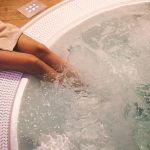Safety is No Accident!
Safety is no Accident!
Summer is officially here and so are water accidents. In New Jersey, there have been at least 30 tragic water deaths since May. Water safety is always of utmost importance no matter what body of water you are using. While residential pools typically don’t have mandatory safety equipment requirements, maintaining a safe swimming pool should be the owner’s top priority. Here is a basic list of swimming pool safety equipment that you should consider having at your pool.
Rules are Made to be Followed!
Pool rules are necessary so everyone knows what they can and cannot do at the pool. Is diving permitted at your pool? Do you have attractions such as slides and waterfalls? Do you allow pool toys? Did your pool come with safety signage or stickers alerting users to certain things at your pool? It is great practice to inform your guests of the do’s and don’ts at your pool before they get in.
To the Rescue!
If someone is actively drowning or struggling in the water, a light, strong, non-telescopic reaching pole can be extended to the swimmer. Having a have a securely attached shepherd’s hook can also be attached to the pole to assist. A US Coast Guard-approved ring buoy attached to a throw rope is another piece of rescue equipment can also be used for actively drowning or struggling swimmers. It is always recommended to never swim alone for anyone. Children should always have constant adult supervision and utilize proper lifejackets if they cannot swim. Adult supervision means being within arm’s length. Many will designate a water watcher when children are in the pool as well. It is good practice for all to have some sort of swim lessons as swimming is a great life skill to possess. And always ask your guests if they know how to swim, regardless of their age.
Is Your Kit Stocked?
You should have a well maintained first aid kit in your home, regardless if you have a pool or not. First aid kits can contain items such as band-aids, antiseptic products, sterile gauze dressings, disposable gloves, waterproof tape, cold packs, Benadryl, and treatments for bug bites and stings. You also want to have sun protection on hand to prevent sunburn, and aloe or after sun for those who may develop sun burn.
Who You Gonna Call?
If you have a severe emergency, you may need to call 911. But, is anyone in your home CPR and first aid certified? Having these life saving skills in your wheel house is always a good protocol – pool or no pool. There are many organizations providing these classes to the general population, or maybe it is required as part of your job. Whatever the case, you it is always best practice to be safe, and not sorry.






